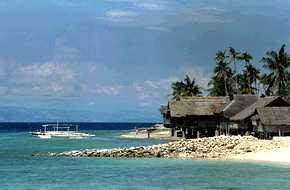
Although composed of 7,107 islands (7,108 at low tide), with a total coastline longer than that of the USA, most of the population of the Philippines lives on just 11 islands. The country offers warm tropical waters, coral gardens with beautiful marine life and dramatic drop-offs on the sea bed.
Inland, the rich history and culture of the Filipino people, the dramatic landscapes and thriving cities fascinate the visitor. Manila, the capital of the Philippines, is also its heart and soul. It sets the rhythm of life in this archipelago and is a pulsating hub that blends the Oriental with the Occidental, the traditional with the modern, the mundane with extraordinary.

The islands were occupied by the Japanese between 1942 and 1945, during WWII, only achieving independence in 1946. The country has suffered from frequent natural disasters, and has pockets of violent rebellion. Poverty and the country's debt burden are also very high, explaining the high number of Filipinos residing abroad.
Infrastructure projects involving airports, expressways, inter-island transport and even the currently almost non-existent railway system are part of a 10-point development agenda until 2010. Travel and tourism will surely benefit, as airports nationwide are being constructed or renovated to accommodate larger planes and more visitors.




















